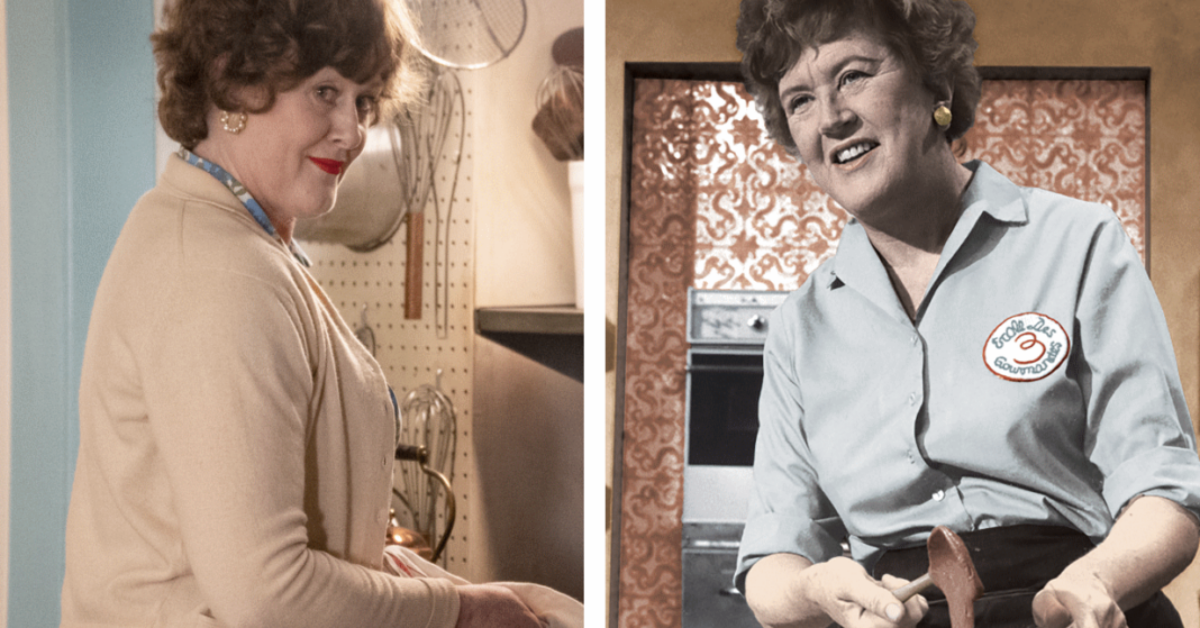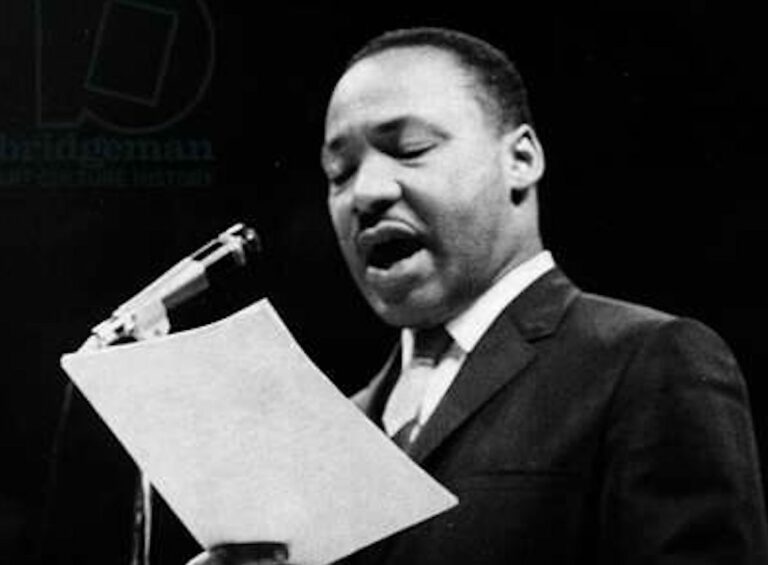Halfway through the first episode of Julia, HBO Max’s new dramedy about Julia Child’s unlikely rise to television stardom, the doyenne of French cooking visits the doctor and learns that the symptoms that have been bothering her— full-body sweats and, as she puts it, “not feeling frisky”—are perfectly normal signs of menopause in a woman of fifty. The doctor delivers the diagnosis with a shrug, and changes the subject to how much his wife loves her recently published cookbook, Mastering the Art of French Cooking. Julia—played with gusto and sensitivity by the British actress Sarah Lancashire—takes in the news, devastation and humiliation playing out across her face. The last faint hope of having her own child has gone, and she has nothing to look forward to, it seems, but her own decline. What now? She conceals the doctor’s verdict from Paul, her husband of fifteen years and closest confidante, and turns her attention immediately back to what she can control: planning and cooking dinner. The scene is part of the show’s effort to humanize and complicate Child, a uniquely American culinary icon. Focusing on her life after France, Julia follows the machinations, compromises, and determination that led to her merrily slapping a raw chicken on the counter and booming “bon appétit!” to a bewildered television crew. The rest is as much myth as history, and the show liberally mixes the two.

In its choice not to show us any of Child’s culinary awakening or training in France, Julia demonstrates that it’s less interested in her cooking than her career. The making of The French Chef therefore becomes a slow-burn story of women’s liberation, and a celebration of female tenacity in the face of casual, everyday misogyny. In this, it carries overtones of other period pieces, like The Marvelous Mrs. Maisel and Mad Men, which explore how it feels to be a talented, ambitious woman surrounded by men who have all the power and none of the competence. As in those shows, the female characters must find a tricky balance between resistance and acceptance. Julia’s main antagonist is her producer at WGBH, Russ Morash (Fran Kranz), a Harvard man who wants to make high-minded shows about economics, and makes no effort to conceal his contempt for women when he’s saddled instead with Child. No doubt the real-life Morash had his misgivings; after all, Julia’s idea had never been tried before. Indeed, her friend Avis DeVoto (Bebe Neuwirth) says, baffled, “what’s a cooking show?” But it is a striking contrast with the real-life Morash, who appears in the 2021 documentary Julia as a warm, enthusiastic presence, a lifelong friend and champion of the chef.
Julia Child did not see herself as a feminist pioneer, breaking down barriers for women everywhere by succeeding somewhere. A conventionally minded woman in many ways, operating in a world of rigid, unthinking gender roles, she was happy to maneuver, dissemble, and flatter men (including Paul) to get her way. She understood the impression she made, with her legendary booming voice, towering over most men, and Lancashire powerfully conveys her physical presence. In the show, she repeatedly disarms people with jokes at her own expense, while comic sequences show her hot and breathless under studio lights, or kneeling to plug in a hot plate, her backside looming at the camera. These scenes walk an uncomfortable line between laughing with Julia and at her, suggesting that the body of a woman who puts herself out there in public is still fair game for critique and dissection. At the same time, she made no attempt to downplay or disguise her femininity, dressing in a conventional uniform of tight pencil skirts, polyester blouses, and snappable high heels. At Le Cordon Bleu, where she was the only female student, the snobbish distinction between a (male) chef and a (female) cook went unquestioned. Yet part of the success of Julia’s television show lay in the audacity of calling it The French Chef, when she was neither. It was a wink from a woman who understood gender roles and prejudices intuitively: a title that would appeal to men even as she knew her audience would be mostly female.
Her main champions and supporters, too, were women. Although Paul played an important part in developing her show and designing the on-screen kitchen, it is Julia’s “estrogen safety net,” as she puts it, including DeVoto and her editor Judith Jones, that are the emotional heart. But it’s also here that Julia deviates most strikingly from the historical record, creating the fictional character of Alice Naman, a young, single, African American producer at the television station, to stand in for the real-life, married, Jewish Ruth Lockwood. Although she’s winningly played by Brittany Bradford, Alice is a missed opportunity to explore the lived experience of Black Bostonians in the early 1960s. The French Chef first aired in early 1963, just as the civil rights movement was coalescing around the city’s woeful record of segregation, police violence, and, especially, substandard schooling for Black children. A few weeks into the year, organizers led a boycott of the Continental Baking Company, the makers of Wonder Bread, in protest at the company’s refusal to hire Black workers.
This background of activism and unrest does not trouble the comfortable environs of the Childs’ home, where Wonder Bread surely never darkened the door. But more importantly, Alice’s race creates no obvious conflicts or barriers, which is jarring in a show that otherwise hews close to the historical record, and there’s no effort to explore how she feels about working in an exclusively white, privileged environment, among people who express nothing but disdain for homegrown cuisine. Instead, Alice is a wholehearted devotee of Julia’s, reading Mastering at a diner counter and greeting with dismay the plate of beige mashed potatoes and meat loaf that she’s served by another Black woman. As her mother tut-tuts over her singleness and dedication to her career, she diligently practices her quiche-making; there’s no conflict that a perfectly flaky pâte brisée can’t fix.

Joanna Scutts is the author of Hotbed: Bohemian Greenwich Village and the Secret Club that Sparked Modern Feminism (Seal Press, forthcoming June 2022) and The Extra Woman: How Marjorie Hillis Led a Generation of Women to Live Alone and Like It (Liveright, 2017)






